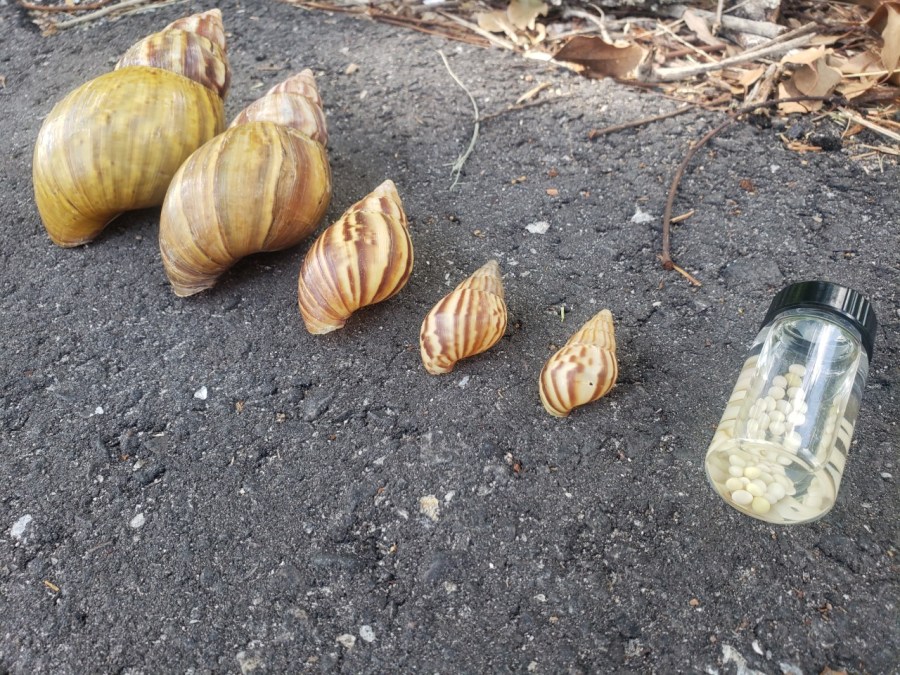NEW PORT RICHEY, Fla. (WFLA) — Almost a month after Giant African Land Snails were found invading a Pasco County community, the Florida Department of Agriculture confirmed the presence of a meningitis-causing parasite the snails carry.
Jason Stanley, a nematologist serving as the FDACS incident commander for the New Port Richey snail incursion, said that the rat lungworm parasite had been found on some of the snail specimens collected. So far, 2,000 specimens have been collected by FDACS since the giant, invasive snails were first detected in late June.
After setting up a quarantine zone, FDACS used specially trained K-9s to sniff them out. Stanley said the parasites were confirmed Friday by an FDACS lab.

“On Friday, our nematology lab in Gainesville found rat lungworm in some of the snails. Which we sort of expected to find, it was just a matter of time. And that’s a parasite that can cause meningitis,” Stanley said.
According to FDACS, the area the snails have been found is not expanding. The department’s spokesperson told WFLA.com that was a good thing. Stanley broke down the process of how state officials are handling the giant snail invasion.
It’s the third time the snails have been detected in Florida, which Stanley said helped them respond.
“What we’re dealing with is an infestation of Giant African Land Snails. We found it back on June 24, we set up a 200-meter core. And we’re doing survey and treatment in that core,” Stanley said. “It’s very concentrated, which is good, that means the population hasn’t moved out that far. So we continue to surveys outside the zone. We’re not finding anything out there which is really good. In Miami we had a different situation, where we started popping cores, as we say, in different areas. This is kind of isolated, a central core. And we’re hitting that really hard with everything we’ve got.”
The Giant African Land Snail quarantine zone starts in New Port Richey “at the NW corner of US Highway 19 and Ridge Road, proceed E on Ridge Road, S on Little Rd, W on Trouble Creek Rd., N on US Highway 19.”
Now that the presence of rat lungworm has been confirmed, Stanley said FDACS is working to keep the public informed. Their response, however, hasn’t changed.
“It’s still the same game plan with treatment and survey, but it helps us make the public more aware, don’t be handling these things, it could be a health issue as well,” Stanley said.
Floridians who see strange or large snails are encouraged to contact the Division of Plant Industry to report a snail sighting and allow them to check for any potential spread of the population. The FDACS-DPI Hotline number is 1-888-397-1517.






